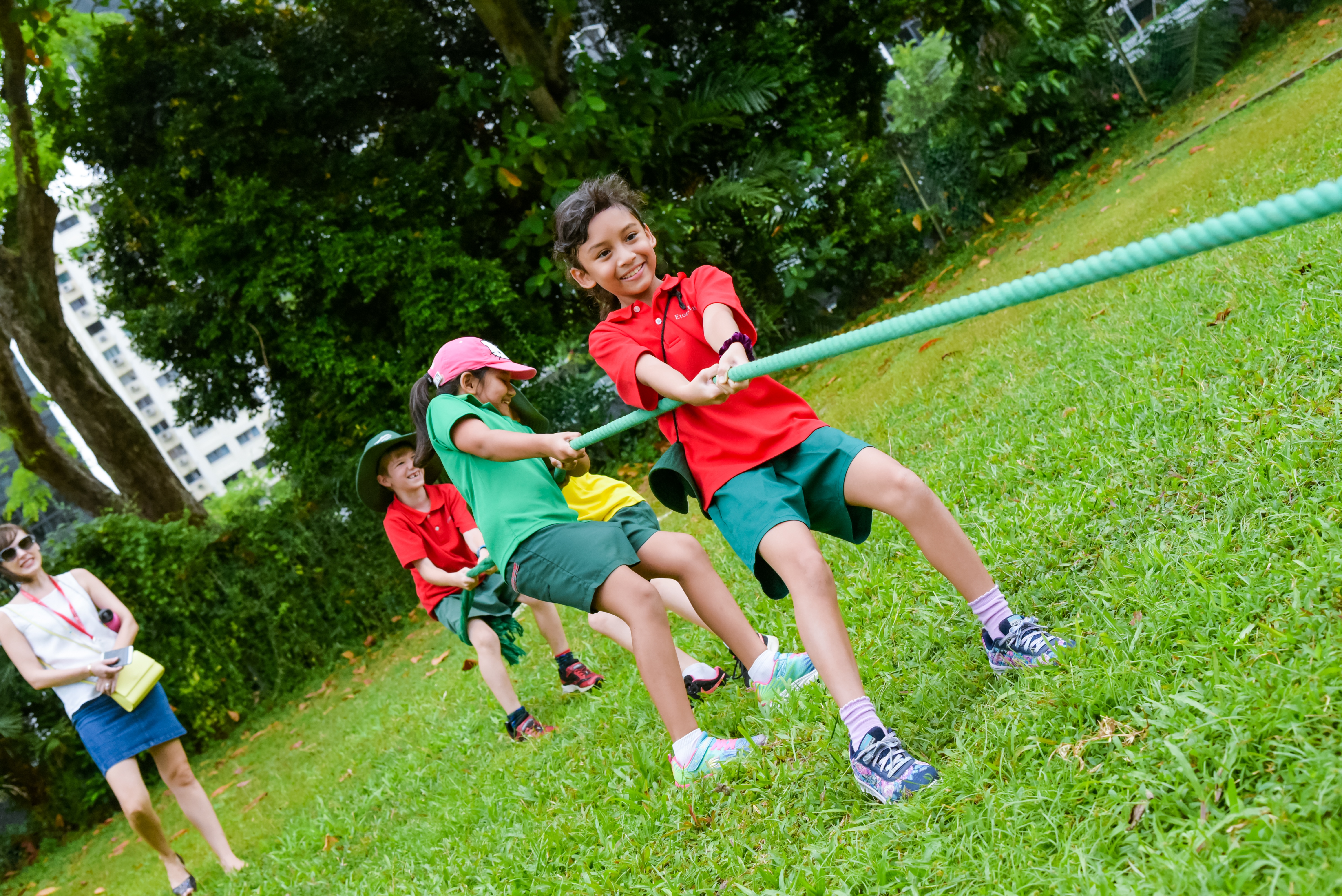-1.png)
EtonHouse Singapore
As parents, educators, and caregivers, we are often searching for the best way to support and guide our children. One invaluable skill we can instil in them is resilience -- the ability to bounce back from challenges, setbacks, and adversity. Resilience not only helps children navigate the ups and downs of life but also equips them with the tools to become confident and successful adults.
In this blog post, we will explore the "7 Cs of Building Resilience in Children" as identified by renowned paediatrician and author, Dr. Kenneth Ginsburg. Additionally, we will discuss three key strategies to nurture resilience: understanding the Power of YET, acknowledging the relationship between resilience and emotions, and learning through mistakes.
The 7 Cs of Building Resilience in Children:
According to Dr. Ginsburg, building resilience in children involves fostering seven key skills, often referred to as the "7 Cs." These skills can be nurtured over time to provide children with a solid foundation for navigating life's challenges:
- Competence: Encourage children to develop skills and abilities in various domains, such as academics, sports, arts, or social interactions. By experiencing success in different areas, children build confidence and a belief in their own capabilities.
- Confidence: Help children develop a positive self-image by acknowledging their strengths and achievements. Encouraging them to take on new challenges while providing support and guidance along the way will boost their confidence levels.
- Connection: Foster strong connections between children and their family, friends, and community. Building a support system helps children feel secure and provides them with a network of people they can turn to for guidance and comfort.
- Character: Teach children the importance of ethical values, empathy, and responsibility. By instilling a strong sense of morals and integrity, children will develop a solid character that guides their decision-making and interactions with others.
- Contribution: Encourage children to contribute positively to their community and society. By engaging in acts of kindness, volunteering, or helping others, children learn the value of making a difference and understand the power of their actions.
- Coping: Teach children healthy coping mechanisms (e.g. Kelso's Choice) to manage stress, disappointment, and adversity. Strategies such as deep breathing, talking about feelings, and engaging in physical activities can help children build resilience and emotional well-being.
- Control: Empower children by providing opportunities for them to make decisions and solve problems independently. Developing a sense of control over their own lives helps children build resilience and adaptability.
3 Key Strategies to Nurture Resilience:
While understanding the 7 Cs provides a comprehensive framework, there are three key strategies that can help nurture resilience in children:
- The Power of YET: Encourage a growth mindset by emphasising the word "YET" when children face challenges and setbacks. For example, instead of saying, "You can't do it," rephrase it to, "You can't do it YET." This simple shift in language helps children understand that their abilities can be developed with effort and perseverance.
- Acknowledging the relationship between resilience and emotions: Help children recognise and manage their emotions effectively. Resilience isn't about suppressing emotions but rather understanding and addressing them in a healthy manner. By teaching children to identify their emotions and express them constructively, we equip them with essential life skills.
- Learning through mistakes: Encourage a positive attitude towards mistakes and failures. Teach children that setbacks are opportunities for growth and learning. When children understand that making mistakes is a natural part of the learning process, they develop resilience and are more willing to take risks and persevere.
Building resilience in children is a lifelong journey that requires patience, guidance, and consistent support. By understanding the "7 Cs of Building Resilience in Children" and implementing strategies like the Power of YET, acknowledging the relationship between resilience and emotions, and learning through mistakes, we can lay a strong foundation for our children to face life's challenges with resilience, confidence, and optimism. Let's empower our children to embrace adversity as an opportunity for growth and equip them with the skills they need to thrive!
- Book recommendations for children:
- I Can’t Do That Yet: Growth Mindset by Esther Pia Cordova
- Perseverance: I Have Grit! by Jodie Shepherd
- Fostering Resilience – Dr. Kenneth Ginsburg
- Kelso Recommends – The Digital Library
View the webinar recording for insights on fostering children’s resilience and empowering them to thrive in the face of adversity.


